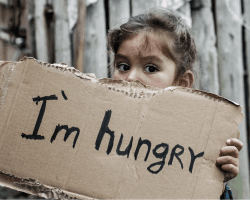(CNS): The Youth Anti-Crime Trust (Youth ACT) is hosting a series of workshops to garner support for a programme designed to teach children with behavioural problems to make better choices and thus avoid becoming criminal offenders. The seminars on the “Stop Now And Plan” (SNAP) initiative will be held 22-24 August in the Marriott Beach Resort ballroom.
The primary goal of SNAP is to help children to stop and think before they act, and keep them in school and out of trouble. Using an evidence-based behavioural model, the programme provides a framework for teaching children and their parents effective emotional regulation, self-control and problem-solving skills.
SNAP was developed in 1985 by Child Development Institute, an accredited children’s mental health organisation in Toronto, as an intervention programme for boys under 12 in conflict with the law. Since then, it has grown and evolved into an internationally recognised model offering gender-specific programmes for children ages 6-11 and youth ages 13-17 as well as specific initiatives for the community and schools.
At the workshops, Youth ACT will be meeting with government ministers, MLAs and other public sector officials; law enforcement; school principals and education support staff; community groups; youth activists; mental health professionals; and private sector entities to introduce them to the programme.
Michael Myles, co-chair of Youth ACT, explained why it is important to reach out to young people at an early age. ““Extensive research carried out by leading scientists indicate that there are ‘seven years of warning’ before a juvenile becomes a serious, violent offender, and that the most serious juvenile offenders in the 15 and up range most likely entered the system under the age of 12,” Myles said.
“Also approximately 75 percent of children who start offending before age 12 are at considerable risk of continuing down this path, and early onset of offending is one of the strongest predictors of subsequent re-offence.”
Bonnie Anglin, Youth ACT co-chair, added, “That means we need to address the behavioural problems we see in at-risk youth early on and do it very aggressively before it gets further out of control.”
Myles said that Youth ACT has been lobbying since 2013 to have the SNAP programme implemented in the Cayman Islands, and views the upcoming workshops as a last-ditch attempt to garner support for a proven and cost-effective method of reducing crime. If unsuccessful, he says the organisation will move on.
“This is a community effort; it takes the support of all the major stakeholders and a willingness to commit resources and funding to fix this crisis. Frankly, we’re past the talk and also the apathy that exists among those who have not been victims of a crime,” Myles said.
“Just because it has not happened to you personally does not mean it doesn’t affect you. Crime affects everyone in our society, and we need to fix this problem as a matter of urgency,” said Myles.
The invitation-only workshops will be conducted by Dr Leena K. Augimeri, director, Scientific and Program Development & Centre for Children Committing Offences at the CDI; and Desiree Phillips, SNAP senior trainer-community development facilitator for the CDI SNAP-implementation team.
Topics will include solutions that have been developed by SNAP to address mental health, behavioural and emotional issues; working with families to help them learn how to problem-solve issues; and how to teach their children to make good decisions “in the moment”.
There will also be a session for the police, prison and judicial branches that promotes the use of a diversion programme and restorative-practice approach to youth committing low-level offences who could be receiving help instead of a prison sentence.
Recent research has shown that SNAP can “reset” a child’s decision-making process in just 13 weeks. In Canada, where SNAP was developed and most used, it has a $32:1 cost-benefit ratio with a $147,423 savings per boy. There is a 33 percent reduction of crime after SNAP with 234 crimes saved per 100 boys as per SNAP evidence-based research.
“It works and we need it,” said Myles.
For more information about Youth ACT call Michael Myles on 925-2012 or Bonnie Anglin on 916-5169. For more information about SNAP, go to its website





